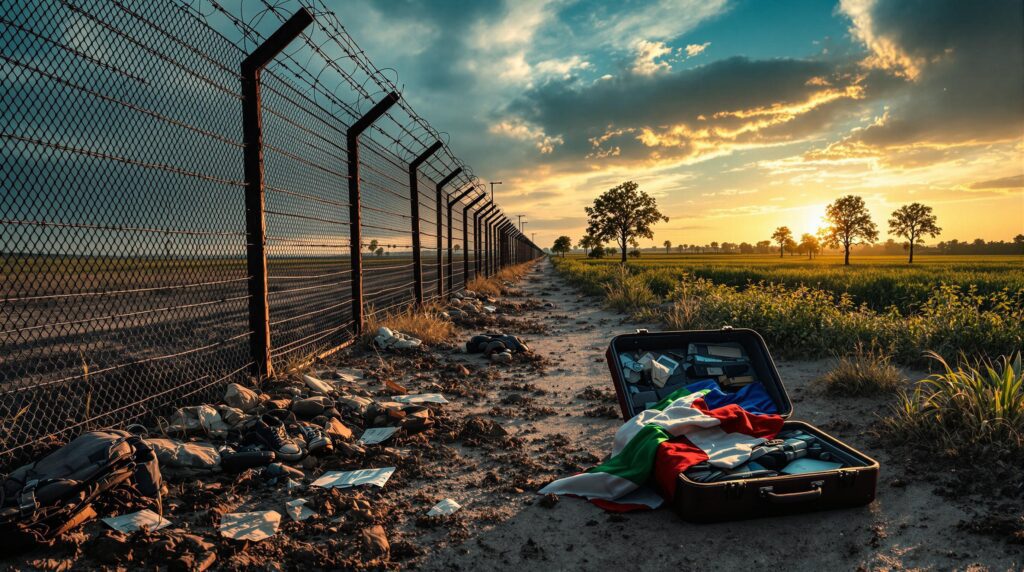In a dramatic escalation of tensions between executive power and judicial oversight, the Trump administration’s recent deportation of Venezuelan migrants has ignited a constitutional battle and sparked serious humanitarian concerns. By deploying the antiquated Alien Enemies Act to justify the swift deportation of 137 Venezuelans, the government blatantly defied an explicit judicial mandate, fueling heated legal and human rights conflicts.
The Rule of Law Under Threat
The controversial deportations occurred despite Judge James Boasberg explicitly ordering a 14-day halt, raising profound questions regarding constitutional integrity and judicial authority. The deportations, justified under the rarely invoked 18th-century law, have drawn sharp criticism from civil rights advocacy groups and legal experts alike.
The American Civil Liberties Union (ACLU), fiercely advocating for accountability, has sought immediate clarification from government authorities, demanding evidence about when and how the deportations took place. Highlighting the government’s contentious defiance, the ACLU emphasizes that “the U.S. retained custody of the individuals until their transfer to foreign authorities,” underscoring a direct violation of judicial directives and potentially setting a troubling constitutional precedent.
Judge Boasberg himself has demanded answers, scheduling a crucial hearing to scrutinize the administration’s adherence—or lack thereof—to the constitutional system of checks and balances. Legal experts suggest that this case could significantly impact future immigration law enforcement and judicial independence, echoing concerns of governmental overreach reminiscent of previous contentious immigration enforcement measures.
Ignored Due Process Threatens Individual Rights
Further intensifying this crisis, Venezuela’s National Assembly President, Jorge Rodriguez, vociferously criticized the administration’s actions, stressing that the deportees were vilified as members of the dangerous Tren de Aragua gang without concrete evidence. Rodriguez denounced the absence of due process in these deportations, proclaiming, “No evidence suggests these individuals committed crimes in the US or El Salvador,” thus revealing a stark violation of fundamental human rights.
Such accusations carry an alarming resonance, particularly as they echo past instances where individuals were unjustly linked to criminal conduct based solely on nationality or ethnicity—drawing uncomfortable parallels with darker historical episodes. Advocates and legal professionals argue that due process is not just procedural fairness but a necessary safeguard against systemic abuses based on racial or ethnic prejudice.
“This troubling scenario paints a stark reminder of why constitutional checks and balances are crucial, especially amidst claims that legal protections were sidelined for political expediency.”
Indeed, the lack of transparency surrounding the identities and exact rationale for deporting these Venezuelans further exacerbates the deep anguish and uncertainty experienced by their families. Desperate for any news, relatives have turned to advocacy organizations and networks, with a newly instituted WhatsApp helpline serving as one of the few lifelines for families seeking what the U.S. government has thus far withheld—answers.
Humanitarian Toll: Families Caught in Legal Crossfire
Behind the legal skirmishes and diplomatic rhetoric are deeply human stories of pain and loss. Family members across multiple nations are urgently seeking clarity, confronting not only geographical obstacles but also emotional anguish brought on by uncertainty. Advocacy groups report immense difficulties assisting families when no transparent mechanisms provide them with adequate information about their loved ones’ whereabouts or conditions.
The swift deportation to El Salvador, a country unrelated to the migrants’ origin or intended destination, further complicates repatriation efforts and compounds community fears. In response, the Venezuelan government has promised aid to facilitate the return of these displaced citizens, declaring a commitment toward proactive measures to assure their safety and uphold rights unfairly denied.
Beyond the specific case, this incident vividly exemplifies why immigration policy must prioritize transparency, human decency, and accountability. Migrant rights, legal justice, and international standards of human treatment should, urgent voices argue, never yield to politicized agendas or xenophobic impulses.
As the judiciary prepares to examine the administration’s troubling disregard for constitutional mandates, the consequences for immigration governance and civil liberties remain dramatically uncertain. Crucially, the outcome will serve as a vivid indicator of America’s commitment—or failure—to uphold foundational democratic and human rights ideals amid pressures from executive authorities testing the very limits of their power.
In these contested decisions lie powerful truths about human rights, governmental accountability, and America’s identity as a nation governed by law and moral dignity. This unfolding drama, therefore, is not merely a legal confrontation but rather, on deeper reflection, a stark representation of the nation’s ongoing struggle to define and protect the fundamental rights of all individuals, irrespective of how loudly authorities posture or condemn without sufficient evidence.

